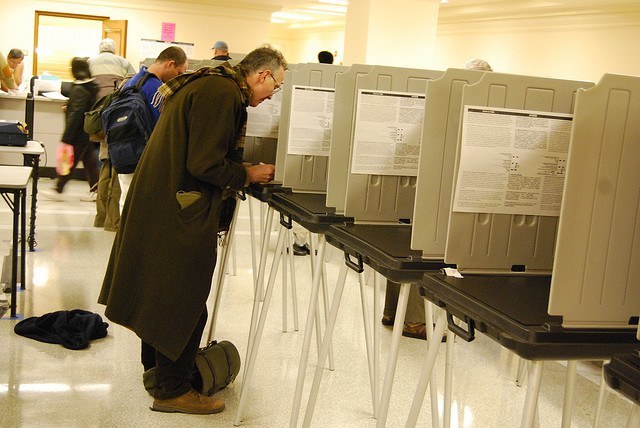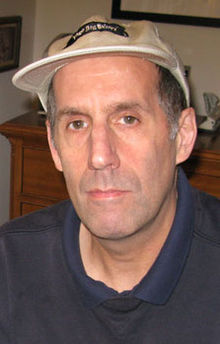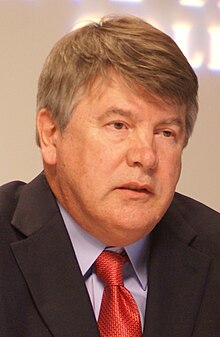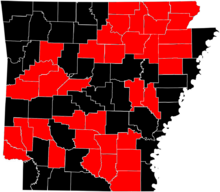
The independent and free website Wikinews always has news about third parties and little of the major parties for some reason. It is not the most updated website but they have original content on third party candidates. They offer their news for free, just like the rest of Wikipedia. Wikipedia has been very useful for Democracy Chronicles for general research, Wikinews and because all of the images on Wikipedia, or almost all, are free to use for a website like ours. If it weren’t for Flickr and Wikipedia, there may not be a Democracy Chronicles.
In these two articles by Wikinews, they interview Bob Ely and John Wolfe, two candidates for the Democratic Party that it’s likely you have never heard of. Those seeking nomination criticize Obama and the Democrats for their past performance. It is always good to get a different perspective so… enjoy.
Wikinews interviews Bob Ely, Democratic Party presidential challenger to Barack Obama
Saturday, May 26, 2012
U.S. Democratic Party presidential candidate Bob Ely of Illinois took some time to answer a few questions from Wikinews reporter William S. Saturn.
Ely, a graduate of Yale University, worked for 18 years as an investment banker in Chicago before leaving the industry in 2000 to become a full-time investor and entrepreneur. Last year, he opened a campaign website and filed with the Federal Election Commission (FEC) as a candidate challenging President Barack Obama for the Democratic Party presidential nomination.
Thus far, Ely has appeared on the Democratic primary ballot in New Hampshire, Louisiana, and Oklahoma. His strongest showing occurred in Louisiana, where he won 6.57 percent of the vote, finishing in third place behind Obama and attorney John Wolfe, Jr.. Discussing the primary, he told Politico that despite being “a candidate who bought no ads and did exactly zero campaigning,” he won 120 of Louisiana’s 4,395 voting precincts, and defeated President Obama in 457. Overall, Ely has won a total of 15,502 primary votes.
On Tuesday May 29, Ely will appear on the Texas primary ballot alongside Obama, Wolfe, and historian Darcy Richardson, who suspended his campaign last month. It will be Ely’s last chance to qualify for Democratic National Convention delegates. Four of his fellow challengers have already done so: anti-abortion activist Randall Terry and perennial candidate Jim Rogers both qualified in Oklahoma, Wolfe qualified in Louisiana and Arkansas, and prison inmate Keith Russell Judd qualified in West Virginia. For various reasons, the Democratic Party stripped the delegates from each of these candidates.
On his campaign website, Ely outlines a plan for a “job’s bank”, which would use the existing organization for unemployment benefits to create a program where businesses can hire individuals to new positions with government salaries of minimum wage. He also wants to make it easier for businesses to terminate employees, and has proposed an increase in taxes and tariffs. He is concerned about the federal budget deficit and wishes to significantly reduce government spending. On other issues, Ely has proposed a plan for “basic health care” coverage, endorses “amnesty” for illegal immigrants in certain situations, and supports a strong, but frugal military used only to “protect America, Americans and America’s clear national interests”
With Wikinews, Ely discusses his personal background and views of President Obama, a few details about his campaign, and such political issues as jobs, energy, taxes, and nuclear proliferation.
Personal
William S. Saturn: What are some of your proudest accomplishments?
Bob Ely: #1, convincing my wife I would be a worthy husband in 1982. #2, Stealing a 10 foot tall 1-ton bronze statue as part of a college event (prank) in 1979. Sadly, that bit a foolish mayhem is probably one of the high-lights of my life.
Have you previously been involved in any political campaigns or issues?
Ely: If you had been elected in 2008, what would you have done differently than Barack Obama?
Ely: Cut spending, raised taxes, really made government smaller and more efficient; made it easier for the private sector to function. Most people don’t realize that the private sector and China pays, directly or indirectly. for everything in this country. It is unclear how long the hard-working savers in China will want to (or be able to) fund our profligate ways. If that changes, everything will fall on the shoulders of the private sector.
Has Obama done any good things as president?
Ely: Yes. I give him a “B−.” He was dealt a tough hand and, given he knows little about business or economics, has probably played it as well as he could.
Do you expect to support the president in November?
Ely: No. I will likely vote for whoever is on line 3 or write in for Ron Paul.
Campaigns Seeking Nomination Criticize Obama
Why did you choose to run for president as a Democrat?
Ely: I’ve always told people I am a conservative, not a Republican. I believe the Republican party has lost is soul. On your campaign website you admit that you are “inexperienced”. What qualifications do you have to be president?
Ely: I’ve had to meet payroll.
What kind of activities do you take part in for the campaign?
Ely: Writing the website, designing and buying advertising and paying a lawyer to fill out FEC forms.
Does your campaign end after the Texas primary?
Ely: Yes
What will constitute a success in this campaign?
Ely: I am pretty sure it is a complete failure. I had expected that combining humor, some outrageousness and a cogent “platform” would make me a safe protest vote – pardon the oxymoron. In a way something like Grillo’s 5 Star movement in Italy. I hoped that if I got traction, I would have scared the major candidates into not being petulant brats and focus on solutions to the serious issues we face. Oddly, Keith Judd was much more successful than I will ever be.
Policy
To pass your jobs program, you must receive the consent of Congress, a group of individuals that, as you say, “need to be loved” for their political survival. Based on this, is it even possible to cut entitlements or create a “Jobs Bank”?
Ely: The founding fathers, whose name has been taken in vain by every living politician, so why not me, designed the Constitution to have Congress reign in the King (President). Now, no one reigns in anything. But if someone is willing to be despised and to take as a point of pride low single-digit approval ratings, the Constitution gives the President many powers to get things done. No one is willing to do it because they want to be loved and care about their legacy and how they will be viewed by history. I am perfectly happy to have a whole new level of presidential ranking just for me, under Warren Harding and Richard Nixon.
You have proposed increased taxes on energy. Since businesses require energy to transport their goods to market, this likely would result in an increase in the cost of living. In such an environment, will people making minimum wage under your jobs plan, be able to afford basic necessities?
Ely: Actually I propose to increase taxes on gasoline and, if the rest of the world will get on board, coal. If I could make the numbers work I would eliminate the tax on diesel for just the reasons you cite plus the ridiculous way in which diesel has to be dyed different colors for tax purposes. That in itself is an example of government inefficiency. What to do about diesel engines in automobiles and light trucks? Tax the engines (like the gas guzzler tax) to make them about equivalent to gasoline engines of comparable life. People smarter than me may have a better solution.
Most schools of economics agree that during a time of economic downturn, government should cut taxes to increase aggregate demand. You propose tax increases to help balance the budget. With that in mind, how can you prevent a continuation of the current economic downturn?
Ely: First, most economists didn’t see the financial crisis coming nor the rebound. I did and invested accordingly. Now I don’t know how to invest for what I see coming, which is why I embarked on this Quixotic endeavor. That’s a bit melodramatic. I do have some ideas. But many of them are not “patriotic.” I believe when you’re in a situation you don’t like, you either have to effect change or adapt. Getting on the ballot was my attempt to effect change. Second, I did pretty well in sixth grade math. With that learning, I conclude that we cannot borrow $1–1.5 trillion each year indefinitely. Japan has proven it can go on for a long time, although they borrow mostly (93%) from themselves. Even they won’t be able to keep it up forever (watch that space closely). Our debt is a growing tumor. It’s either chemotherapy today or death tomorrow.
For your “easier to get fired” plan, which allows businesses to fire employees in the first 180 days of employment for any reason, must Title VII of the 1964 Civil Rights Act be repealed since “any reason” could be construed to include the “race, color, religion, sex, or national origin” of an employee?
Ely: No. Any business person stupid enough to fire someone for their race when they could fire them for “no reason” should be punished to the fullest extent of the law. I know women business people, however, who are reluctant to hire women because of the potential liability if the employee ends up being a dud.
How should the U.S. president address the nuclear situation in Iran, or more broadly, the issue of nuclear proliferation?
Ely: The United States should make it very clear that any country, for example one that begins its sessions of parliament with “death to America,” that we perceive has become a clear and present danger, the consequences of our military action will be the substitution of Iranian for Carthaginian in the term “Carthaginian Peace.”
Attorney John Wolfe wins 42% against President Obama in Arkansas primary

Attorney John Wolfe, Jr. of Chattanooga, Tennessee won 68,105 votes for 42 percent of the total in Tuesday’s Arkansas Democratic Party presidential primary. He came in first in 36 counties and finished only 16 points behind President Barack Obama, who won the primary with 95,382 votes for 58 percent. The result tops prison inmate Keith Russell Judd’s 41 percent West Virginia primary showing against Obama two weeks ago as the strongest outing for a Democratic challenger thus far. According to The Green Papers, Wolfe qualified for 19 Democratic National Convention delegates, which the party has already announced they will deny.
Wolfe, who is concerned about the influence of Wall Street in the Obama administration, announced his primary challenge to Obama last year. So far, along with Arkansas, he has qualified for the primary ballot in New Hampshire, Missouri, Louisiana and Texas. Before Tuesday, his strongest showing came in Louisiana, where he won 12 percent overall with over 15 percent in some congressional districts, qualifying him for delegates. However, these were stripped after the party claimed Wolfe had not filed the necessary paperwork.
He has announced plans to take legal action against the party, and in an interview with Wikinews last week, commented, “the Democratic Party decided to avert, quite flagrantly, the will of the people and assign all the delegates to Mr. Obama, even though their bylaws, the rules themselves say that the results of the primary are binding…They forsook their own law in order to make it look like there was unanimous support for Obama.”
Although President Obama has won enough delegates in this election cycle to secure the Democratic Party nomination, previously unknown challengers such as Wolfe have qualified for delegates. In March, anti-abortion activist Randall Terry and perennial candidate Jim Rogers qualified for delegates in Oklahoma, but later had them stripped by the party for not filing delegate slates and, in Terry’s case, not qualifying as a bona-fide candidate. The same outcome occurred for Judd in West Virginia, and as mentioned above, for Wolfe in Louisiana and Arkansas.
After the Arkansas Democratic Party announced prior to Tuesday’s vote that any delegates Wolfe gains will not be seated, Wolfe told The Daily Caller he would pursue further legal action, proclaiming, “It will be a summer of litigation. … I hate to do it against my own party, but they’re acting as if this guy [Obama] is some kind of emperor.”
The last Democratic Party presidential incumbent, Bill Clinton, faced fewer challenges than Obama during his 1996 primary election, but the party still had to deal with a candidate that won delegates. Challenger Lyndon LaRouche qualified for delegates in Louisiana and Virginia that year, but the party stripped these, claiming LaRouche’s views were “explicitly racist and anti-Semitic.” Like Wolfe, LaRouche proceeded to sue the party, but was unsuccessful.
Regardless of whether the party ultimately awards the delegates, some analysts say the results provide insights into voters’ perception of Obama. Peter Grier of The Christian Science Monitor explained that “white working-class voters”, who make up a majority in Arkansas, “have been disproportionately hurt by the economic downturn, and they’re resistant to what they see as Obama’s liberal health-care reforms and support of gay marriage.” Republican Congressman Tom Cole of Oklahoma argued “Obama fares poorly in states like … Arkansas because he has nothing in common with them. They are rural, he is urban. They are populist, he is elitist. And in case anyone hadn’t noticed, they are conservative while he is liberal.” Former Democratic Congressman Charlie Stenholm largely agreed, commenting “The most significant factor is the perception/reality that the Obama administration has leaned toward the ultra-left viewpoint on almost all issues.”
Others have dismissed the results, arguing it is a foregone conclusion that Obama will not win Arkansas in the general election, and that opposition there may be the result of racism against Obama, the first African American president. Chris Cillizza of The Washington Post published an article questioning whether racism played a role and concluded that though it likely did, “simply labeling [the people of] Arkansas who backed Tennessee lawyer John Wolfe over the incumbent as ‘racists’ is a major oversimplification.” University of Virginia political scientist Larry Sabato warned Democrats against overlooking the results, saying “Obama will never carry white working class. But he can’t afford to lose it by massive margins, either.”
The Associated Press asked a few Arkansas voters how they cast their ballot and why. One voter, described as a 57-year-old resident of Lonoke, Arkansas, said she voted for John Wolfe because she “wasn’t satisfied with Obama” and had a particular concern about Social Security. An 85-year-old retiree from Little Rock, Arkansas said he also voted for Wolfe, but called it “a wasted vote…I guess you just do it in opposition.”
As for the Obama supporters, one Little Rock voter said he cast his ballot for Obama, even though “I am not entirely happy with what he is doing.” Another, identified as a 51-year-old attorney from Lonoke, said she voted for Obama and fully supports him because “he stands up for what he believes in and he has not wavered.” One 73-year-old retired aircraft mechanic said he voted for Obama because “they don’t have but two names on the ballot: President Obama and that other guy [John Wolfe], [and] I don’t know anything about the other guy.”
In other races on Tuesday, “uncommitted” won a similar margin as Wolfe against Obama in the Kentucky Democratic primary. On the Republican side, former Massachusetts governor Mitt Romney easily won both the Arkansas and Kentucky primaries with 68.3 percent and 66.8 percent, respectively.
The next primary will be held May 29 in Texas. Wolfe will be on the ballot alongside Obama, historian Darcy Richardson, and activist Bob Ely.
Bob Ely article:
https://en.wikinews.org/wiki/Wikinews_interviews_Bob_Ely,_Democratic_Party_presidential_challenger_to_Barack_Obama
John Wolfe article:
https://en.wikinews.org/wiki/Attorney_John_Wolfe_wins_42%25_against_President_Obama_in_Arkansas_primary

Leave a Reply